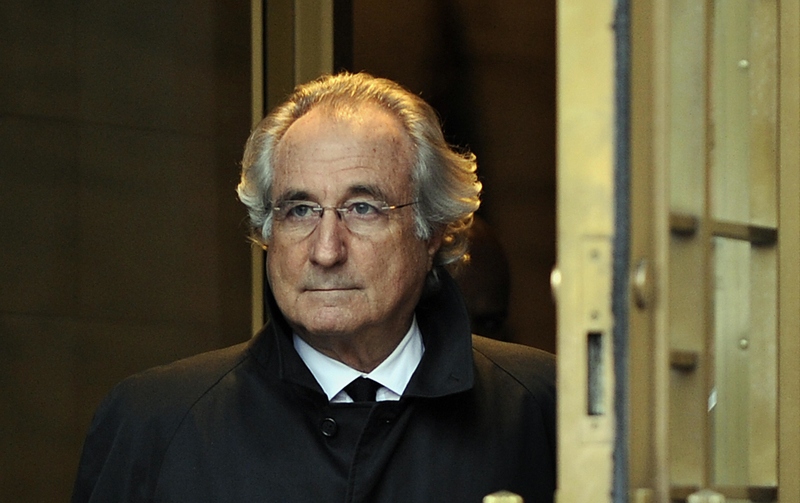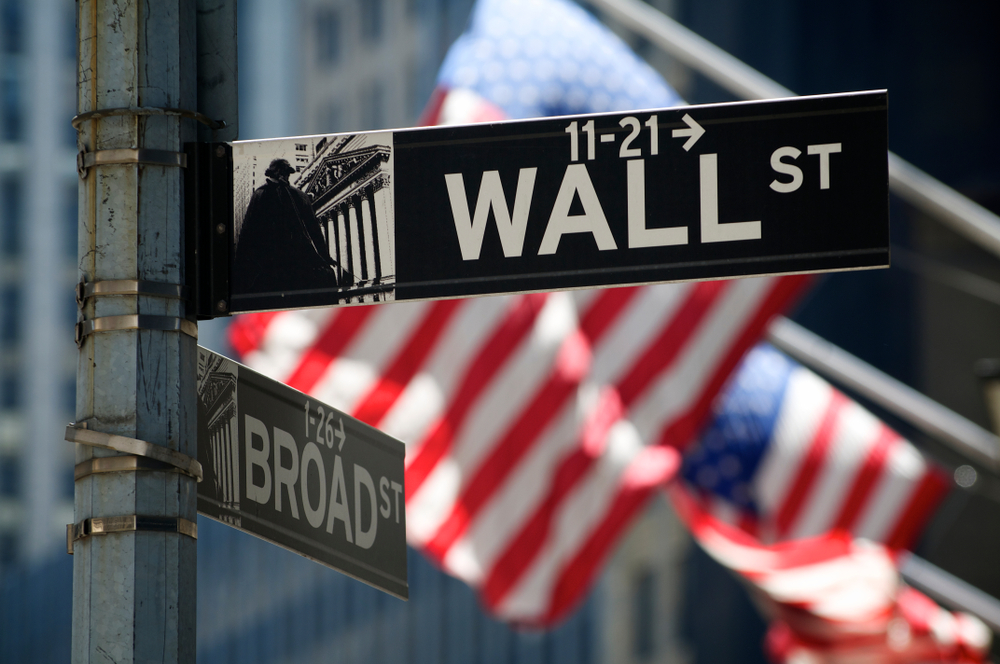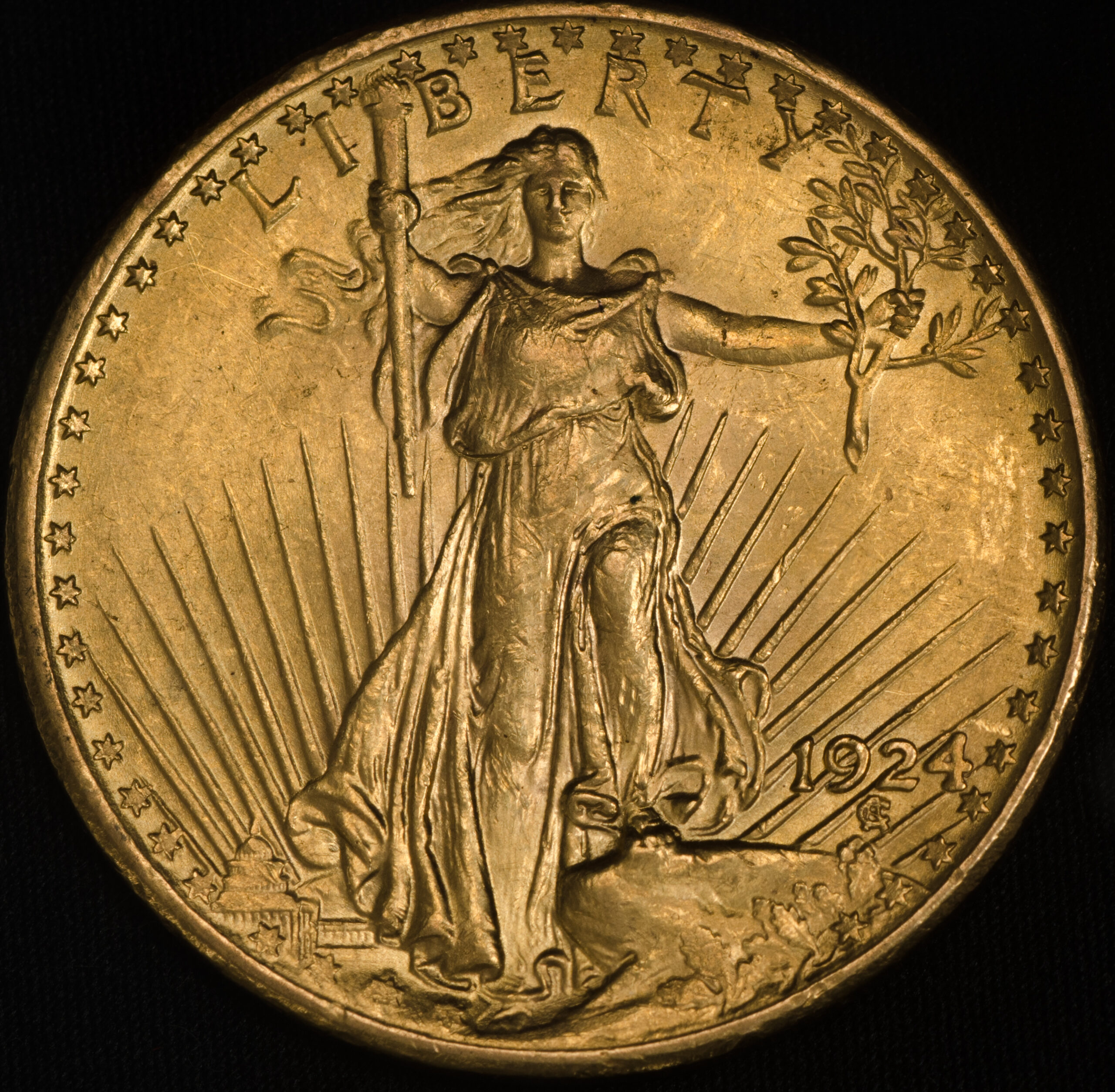In the world of finance, not all that glitters is gold. Over the years, a dark undercurrent of deceit and deception has surfaced through financial scams that shook economies and shattered lives. These scams involve charismatic crooks weaving tales so convincing that even the most skeptical investors are sometimes ensnared. Dive into the murky past with us as we unravel 15 of the biggest financial scams in history and the notorious figures behind them. Each story is a cautionary tale, reminding us to always tread carefully in the world of finance.
1. The Enduring Enron Scandal: Cooking the Books

Enron Corporation was once a celebrated energy giant before it became synonymous with corporate fraud and corruption. The company’s executives, including CEO Jeffrey Skilling and Chairman Ken Lay, used accounting loopholes and special purpose entities to hide billions in debt from Enron’s balance sheet. According to Investopedia, these deceptive accounting practices made Enron appear more profitable than it was, inflating its stock price. Investors were eager to buy, believing they were purchasing shares in a booming company.
When Enron’s deception came to light in 2001, the company filed for bankruptcy, and its stock price plummeted to a mere fraction of its previous value. The scandal wiped out the pensions of thousands of Enron employees and investors and led to significant regulatory changes, including the Sarbanes-Oxley Act. Skilling and Lay were both found guilty of fraud, although Lay passed away before serving his sentence. This scandal remains a stark reminder of the consequences of corporate greed and lack of transparency.
2. Bernie Madoff’s Unbelievable Ponzi Scheme

Bernie Madoff, a former chairman of NASDAQ, masterminded the largest Ponzi scheme in history, defrauding investors of an estimated $65 billion. Madoff promised consistent, above-average returns through a “split-strike conversion” strategy, attracting thousands of investors. The truth, however, was that Madoff was paying returns to earlier investors using the capital from newer ones, a classic Ponzi tactic. According to Reuters, Madoff’s firm never made any legitimate trades on behalf of its clients. When the scheme collapsed in 2008, countless individuals, charities, and financial institutions were left devastated.
Madoff’s reputation as a financial wizard was irreparably tarnished, and he became the poster child for financial fraud. Arrested on December 11, 2008, he pled guilty to 11 federal felonies and was sentenced to 150 years in prison. His downfall served as a wakeup call for regulators and investors alike. It highlighted the crucial importance of skepticism and due diligence when entrusting money to others, no matter their reputation.
3. The Deceptive WorldCom Accounting Fraud

WorldCom, once the United States’ second-largest long-distance telecom company, underwent a spectacular fall from grace in 2002. Under CEO Bernard Ebbers, the company admitted to inflating assets by as much as $11 billion through fraudulent accounting practices. The scandal came to public attention after a significant internal audit, which was followed by the U.S. Securities and Exchange Commission filing charges against WorldCom. It was revealed that expenses were improperly classified as capital investments to keep earnings in line with Wall Street expectations.
The fallout from the WorldCom scandal was massive, leading to the largest bankruptcy filing in U.S. history at the time and casting a shadow over the telecom industry. Bernard Ebbers was found guilty of fraud, conspiracy, and making false filings, resulting in a 25-year prison sentence. The shocking financial manipulations at WorldCom were instrumental in pushing for more stringent corporate governance laws. The scandal underscored the devastating impact of dishonest accounting and the importance of vigilance and integrity in corporate practices.
4. The Infamous Charles Ponzi and His Eponymous Scheme

The original Ponzi scheme was orchestrated by Charles Ponzi in the early 1920s, capturing the imaginations and wallets of eager investors. Ponzi promised returns of 50% in 45 days or doubling their money in 90 days by investing in discounted postal reply coupons. His promise of extraordinary profits attracted a wave of investors, eager to partake in what seemed like a surefire win. However, Ponzi was merely paying old investors with money from new investors, never actually investing the funds as promised.
The scheme began to unravel when authorities grew suspicious, leading to a cascade of redemptions that Ponzi couldn’t fulfill. As the truth came out, investors lost about $20 million, equivalent to around $270 million today. Ponzi was eventually arrested and served time in prison, forever linking his name to this type of fraudulent investment scam. His story serves as an everlasting reminder of how greed and gullibility can lead to financial ruin.
5. Allen Stanford’s Lavish Banking Empire of Lies

Allen Stanford orchestrated a massive Ponzi scheme through his company, Stanford International Bank, offering fraudulent high-yield certificates of deposit. Promising returns that far exceeded those of traditional banks, Stanford attracted investors from all over the world. The opulent lifestyle he led, complete with private jets and yachts, helped bolster his image as a successful international banker. However, these returns were fabricated, paid out using new investors’ money rather than legitimate profits.
In 2009, the U.S. Securities and Exchange Commission charged Stanford with fraud, revealing the $7 billion deception. As panic spread among investors, the true extent of the financial damage became apparent, wiping out the savings of many. Stanford was convicted on multiple counts of fraud and sentenced to 110 years in prison. His downfall serves as a cautionary tale about the dangers of too-good-to-be-true investment opportunities and the importance of regulatory oversight.
6. The Collapse of Lehman Brothers: A Cautionary Tale of Overreach

Lehman Brothers, once a titan of Wall Street, became the largest bankruptcy filing in U.S. history in 2008. Under the leadership of CEO Richard Fuld, the firm aggressively pursued high-risk real estate investments and subprime mortgages. As these investments soured, Lehman attempted to mask its deteriorating financial health with dubious accounting practices, including the infamous Repo 105 transactions. These transactions temporarily removed liabilities from the balance sheet, creating a misleading impression of financial stability.
When the truth surfaced, Lehman’s stock plummeted, and the firm collapsed, triggering a global financial crisis. Investors, creditors, and employees were left in turmoil, and the ripple effects were felt across international markets. The fall of Lehman Brothers highlighted systemic risks and the need for better regulation of financial institutions. This historic collapse serves as a sobering lesson on the dangers of excessive leverage and lack of transparency in the financial industry.
7. The DeLorean Motor Company: A Futuristic Dream Turned Nightmare

John DeLorean, the visionary behind the iconic DeLorean car, founded the DeLorean Motor Company in the 1970s with grand ambitions. The futuristic car, with its stainless-steel body and gull-wing doors, captured public imagination, but the company faced insurmountable financial challenges. To save his struggling enterprise, DeLorean became embroiled in a cocaine trafficking deal in 1982, hoping to raise the necessary funds. His involvement in the drug scheme was exposed through a sting operation by the FBI, leading to his arrest and a highly publicized trial.
Acquitted on the grounds of entrapment, DeLorean’s reputation was tarnished, and the company ultimately went bankrupt. Despite the car’s cult status, the financial scandal left investors and creditors empty-handed. The DeLorean saga is a testament to the perils of desperate measures and the blurred line between ambition and ethics. It serves as a reminder of how quickly innovation can be overshadowed by scandal.
8. The Bre-X Gold Scandal: Fool’s Gold and a Fortunes Lost

The Bre-X gold scandal of the 1990s is one of the most infamous cases of mining fraud in history. Geologist Michael de Guzman claimed a massive gold find at the Busang site in Indonesia, sending Bre-X’s stock soaring. Investors from around the world flocked to buy shares, believing they were on the brink of a gold rush. However, it was later revealed that the samples had been salted, with gold shavings from jewelry mixed into them to inflate the results.
When the truth came out, Bre-X’s stock value plummeted, and the company declared bankruptcy, leaving investors with nothing. The fallout was devastating, with billions of dollars lost and the mining industry’s credibility severely damaged. The scandal also raised questions about the due diligence practices of financial institutions and regulatory bodies. It remains a stark reminder of the need for thorough verification and skepticism in investment opportunities.
9. The Collapse of Barings Bank: A Rogue Trader’s Downfall

Barings Bank, the oldest merchant bank in London, collapsed in 1995 due to the rogue trading activities of Nick Leeson. As a derivatives trader in Singapore, Leeson made unauthorized speculative trades that initially appeared profitable but quickly spiraled into massive losses. Using obscure accounting practices, Leeson hid his losses in a secret account, hoping to recoup the funds through further trading. However, his strategy backfired, leading to a loss of £827 million, which the bank could not absorb.
The collapse of Barings Bank was a wake-up call for the financial industry, highlighting the dangers of inadequate oversight and risk management. Leeson was arrested and served time in prison, and his story is often cited in discussions of ethical conduct in finance. The incident prompted changes in regulatory practices and risk assessment procedures in the banking sector. It stands as a testament to the devastating impact of unchecked ambition and lack of accountability.
10. The Volkswagen Emissions Scandal: Deception on a Global Scale

The Volkswagen emissions scandal, also known as Dieselgate, erupted in 2015 when it was revealed that the German automaker had installed software in diesel vehicles to cheat emissions tests. This “defeat device” allowed cars to meet regulatory standards during testing but emitted far higher levels of pollutants in real-world driving conditions. The scandal affected millions of vehicles worldwide and led to significant environmental and health concerns.
Volkswagen faced massive fines, legal actions, and a severe blow to its reputation as the deception came to light. The scandal highlighted the importance of corporate integrity and the consequences of prioritizing profit over ethical standards. It also spurred changes in automotive regulations and increased scrutiny on emissions testing globally. Dieselgate serves as a cautionary tale about the long-term costs of corporate misconduct and the vital role of regulatory oversight.
11. The Parmalat Scandal: Italy’s Largest Corporate Collapse

Parmalat, once a global leader in the dairy and food industry, collapsed in 2003 due to a massive accounting fraud. Founder and CEO Calisto Tanzi masterminded the fraudulent scheme to hide the company’s financial troubles, using complex financial instruments and fictitious assets. The deception unraveled when a 14 billion euro hole was discovered in Parmalat’s accounts, revealing the extent of the financial misconduct.
The Parmalat scandal sent shockwaves through the financial world, affecting banks, investors, and employees. Tanzi was convicted of fraud and sentenced to prison, and the scandal led to increased scrutiny on corporate governance in Italy. The incident underscored the importance of transparency and accountability in financial reporting. Parmalat’s collapse remains a significant reminder of the dangers of unchecked corporate power and the need for rigorous oversight.
12. The Mysterious Case of Martin Frankel: Insurance Fraud and Evasion

Martin Frankel’s story is one of intrigue and deception, as he orchestrated an elaborate insurance fraud scheme in the 1990s. Posing as a wealthy financier, Frankel acquired several small insurance companies, siphoning off their assets for personal gain. To cover his tracks, he used a maze of offshore accounts, fake charities, and false identities. His scheme unraveled in 1999 when authorities discovered his fraudulent activities and attempts to flee the country.
Frankel’s actions left policyholders and investors in turmoil, with losses estimated at over $200 million. He was eventually captured, extradited, and sentenced to prison for his crimes. The case highlighted the need for better regulation and oversight in the insurance industry. Frankel’s story serves as a cautionary tale about the dangers of unchecked ambition and the lengths to which individuals will go to evade the law.
13. The Olympus Scandal: A Hidden Loss Unveiled

The Olympus scandal, which came to light in 2011, is a notable example of corporate malfeasance in Japan. Executives at the electronics giant were found to have concealed significant investment losses through fraudulent accounting practices dating back to the 1990s. The deception involved complex financial instruments and the use of offshore entities to hide the company’s financial woes.
The exposure of the scandal led to a dramatic fall in Olympus’s stock price and a loss of investor confidence. Several executives were arrested and faced legal repercussions, and the incident prompted significant changes in corporate governance in Japan. The Olympus scandal highlighted the need for transparency and ethical conduct in business practices. It remains a powerful reminder of the long-lasting impact of corporate deceit on a company’s reputation and financial standing.
14. The Great Salad Oil Swindle: A Liquid Deception

The salad oil scandal of the 1960s involved Anthony “Tino” De Angelis, a commodities trader who orchestrated a fraud involving soybean oil. De Angelis used deceptive tactics to inflate the value of his oil inventories, borrowing against them to secure massive loans. However, much of the oil was either non-existent or heavily diluted, leading to significant financial losses for banks and investors when the fraud was uncovered.
The scandal resulted in a loss of over $150 million, equivalent to approximately $1.2 billion today, and led to the bankruptcy of several companies. De Angelis was arrested and served prison time for his role in the swindle. The incident prompted changes in commodity trading regulations and highlighted the need for rigorous due diligence in financial transactions. The Great Salad Oil Swindle remains a cautionary tale about the dangers of unchecked greed and the importance of verifying asset claims.
15. The Allied Crude Vegetable Oil Refining Co. Scandal: A Tangled Web of Deception

The Allied Crude Vegetable Oil Refining Co. scandal of the 1960s is another case of fraudulent activity in the commodity trading sector. The company’s executives devised a scheme to inflate the value of their oil inventories, using deceptive tactics to secure large bank loans. When the fraud was exposed, it became clear that much of the oil was either diluted or non-existent, leading to significant financial losses for lenders and investors.
The scandal highlighted the vulnerabilities in commodity trading and the need for robust regulatory oversight. The fallout led to increased scrutiny of financial practices in the industry and prompted changes in regulatory frameworks. The Allied Crude scandal serves as a reminder of the risks associated with financial speculation and the importance of transparency in business operations. It stands as a testament to the destructive power of corporate deceit.
This article is for informational purposes only and should not be construed as financial advice. Consult a financial professional before making investment or other financial decisions. The author and publisher make no warranties of any kind.








